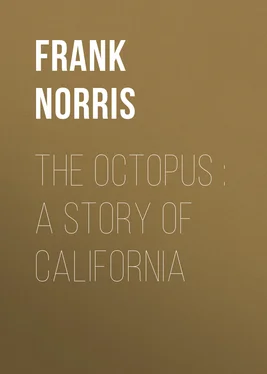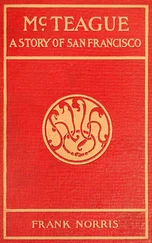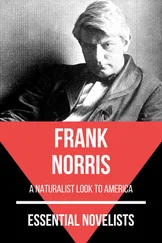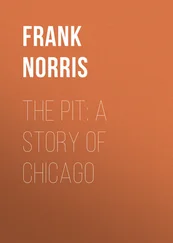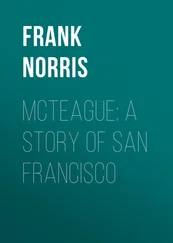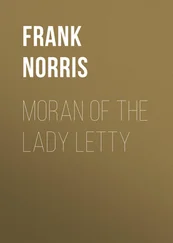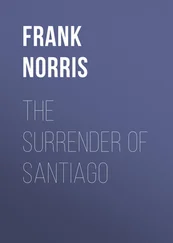Frank Norris - The Octopus - A Story of California
Здесь есть возможность читать онлайн «Frank Norris - The Octopus - A Story of California» — ознакомительный отрывок электронной книги совершенно бесплатно, а после прочтения отрывка купить полную версию. В некоторых случаях можно слушать аудио, скачать через торрент в формате fb2 и присутствует краткое содержание. Жанр: foreign_prose, literature_19, foreign_antique, на английском языке. Описание произведения, (предисловие) а так же отзывы посетителей доступны на портале библиотеки ЛибКат.
- Название:The Octopus : A Story of California
- Автор:
- Жанр:
- Год:неизвестен
- ISBN:нет данных
- Рейтинг книги:5 / 5. Голосов: 1
-
Избранное:Добавить в избранное
- Отзывы:
-
Ваша оценка:
- 100
- 1
- 2
- 3
- 4
- 5
The Octopus : A Story of California: краткое содержание, описание и аннотация
Предлагаем к чтению аннотацию, описание, краткое содержание или предисловие (зависит от того, что написал сам автор книги «The Octopus : A Story of California»). Если вы не нашли необходимую информацию о книге — напишите в комментариях, мы постараемся отыскать её.
The Octopus : A Story of California — читать онлайн ознакомительный отрывок
Ниже представлен текст книги, разбитый по страницам. Система сохранения места последней прочитанной страницы, позволяет с удобством читать онлайн бесплатно книгу «The Octopus : A Story of California», без необходимости каждый раз заново искать на чём Вы остановились. Поставьте закладку, и сможете в любой момент перейти на страницу, на которой закончили чтение.
Интервал:
Закладка:
“Yes, yes,” he exclaimed, “I can see it all. The desert, the mountains, all wild, primordial, untamed. How I should have loved to have been with you. Then, perhaps, I should have got hold of my idea.”
“Your idea?”
“The great poem of the West. It’s that which I want to write. Oh, to put it all into hexameters; strike the great iron note; sing the vast, terrible song; the song of the People; the forerunners of empire!”
Vanamee understood him perfectly. He nodded gravely.
“Yes, it is there. It is Life, the primitive, simple, direct Life, passionate, tumultuous. Yes, there is an epic there.”
Presley caught at the word. It had never before occurred to him.
“Epic, yes, that’s it. It is the epic I’m searching for. And HOW I search for it. You don’t know. It is sometimes almost an agony. Often and often I can feel it right there, there, at my finger-tips, but I never quite catch it. It always eludes me. I was born too late. Ah, to get back to that first clear-eyed view of things, to see as Homer saw, as Beowulf saw, as the Nibelungen poets saw. The life is here, the same as then; the Poem is here; my West is here; the primeval, epic life is here, here under our hands, in the desert, in the mountain, on the ranch, all over here, from Winnipeg to Guadalupe. It is the man who is lacking, the poet; we have been educated away from it all. We are out of touch. We are out of tune.”
Vanamee heard him to the end, his grave, sad face thoughtful and attentive. Then he rose.
“I am going over to the Mission,” he said, “to see Father Sarria. I have not seen him yet.”
“How about the sheep?”
“The dogs will keep them in hand, and I shall not be gone long. Besides that, I have a boy here to help. He is over yonder on the other side of the herd. We can’t see him from here.”
Presley wondered at the heedlessness of leaving the sheep so slightly guarded, but made no comment, and the two started off across the field in the direction of the Mission church.
“Well, yes, it is there—your epic,” observed Vanamee, as they went along. “But why write? Why not LIVE in it? Steep oneself in the heat of the desert, the glory of the sunset, the blue haze of the mesa and the canyon.”
“As you have done, for instance?”
Vanamee nodded.
“No, I could not do that,” declared Presley; “I want to go back, but not so far as you. I feel that I must compromise. I must find expression. I could not lose myself like that in your desert. When its vastness overwhelmed me, or its beauty dazzled me, or its loneliness weighed down upon me, I should have to record my impressions. Otherwise, I should suffocate.”
“Each to his own life,” observed Vanamee.
The Mission of San Juan, built of brown ‘dobe blocks, covered with yellow plaster, that at many points had dropped away from the walls, stood on the crest of a low rise of the ground, facing to the south. A covered colonnade, paved with round, worn bricks, from whence opened the doors of the abandoned cells, once used by the monks, adjoined it on the left. The roof was of tiled half-cylinders, split longitudinally, and laid in alternate rows, now concave, now convex. The main body of the church itself was at right angles to the colonnade, and at the point of intersection rose the belfry tower, an ancient campanile, where swung the three cracked bells, the gift of the King of Spain. Beyond the church was the Mission garden and the graveyard that overlooked the Seed ranch in a little hollow beyond.
Presley and Vanamee went down the long colonnade to the last door next the belfry tower, and Vanamee pulled the leather thong that hung from a hole in the door, setting a little bell jangling somewhere in the interior. The place, but for this noise, was shrouded in a Sunday stillness, an absolute repose. Only at intervals, one heard the trickle of the unseen fountain, and the liquid cooing of doves in the garden.
Father Sarria opened the door. He was a small man, somewhat stout, with a smooth and shiny face. He wore a frock coat that was rather dirty, slippers, and an old yachting cap of blue cloth, with a broken leather vizor. He was smoking a cheap cigar, very fat and black.
But instantly he recognised Vanamee. His face went all alight with pleasure and astonishment. It seemed as if he would never have finished shaking both his hands; and, as it was, he released but one of them, patting him affectionately on the shoulder with the other. He was voluble in his welcome, talking partly in Spanish, partly in English. So he had come back again, this great fellow, tanned as an Indian, lean as an Indian, with an Indian’s long, black hair. But he had not changed, not in the very least. His beard had not grown an inch. Aha! The rascal, never to give warning, to drop down, as it were, from out the sky. Such a hermit! To live in the desert! A veritable Saint Jerome. Did a lion feed him down there in Arizona, or was it a raven, like Elijah? The good God had not fattened him, at any rate, and, apropos, he was just about to dine himself. He had made a salad from his own lettuce. The two would dine with him, eh? For this, my son, that was lost is found again.
But Presley excused himself. Instinctively, he felt that Sarria and Vanamee wanted to talk of things concerning which he was an outsider. It was not at all unlikely that Vanamee would spend half the night before the high altar in the church.
He took himself away, his mind still busy with Vanamee’s extraordinary life and character. But, as he descended the hill, he was startled by a prolonged and raucous cry, discordant, very harsh, thrice repeated at exact intervals, and, looking up, he saw one of Father Sarria’s peacocks balancing himself upon the topmost wire of the fence, his long tail trailing, his neck outstretched, filling the air with his stupid outcry, for no reason than the desire to make a noise.
About an hour later, toward four in the afternoon, Presley reached the spring at the head of the little canyon in the northeast corner of the Quien Sabe ranch, the point toward which he had been travelling since early in the forenoon. The place was not without its charm. Innumerable live-oaks overhung the canyon, and Broderson Creek—there a mere rivulet, running down from the spring—gave a certain coolness to the air. It was one of the few spots thereabouts that had survived the dry season of the last year. Nearly all the other springs had dried completely, while Mission Creek on Derrick’s ranch was nothing better than a dusty cutting in the ground, filled with brittle, concave flakes of dried and sun-cracked mud.
Presley climbed to the summit of one of the hills—the highest—that rose out of the canyon, from the crest of which he could see for thirty, fifty, sixty miles down the valley, and, filling his pipe, smoked lazily for upwards of an hour, his head empty of thought, allowing himself to succumb to a pleasant, gentle inanition, a little drowsy comfortable in his place, prone upon the ground, warmed just enough by such sunlight as filtered through the live-oaks, soothed by the good tobacco and the prolonged murmur of the spring and creek. By degrees, the sense of his own personality became blunted, the little wheels and cogs of thought moved slower and slower; consciousness dwindled to a point, the animal in him stretched itself, purring. A delightful numbness invaded his mind and his body. He was not asleep, he was not awake, stupefied merely, lapsing back to the state of the faun, the satyr.
After a while, rousing himself a little, he shifted his position and, drawing from the pocket of his shooting coat his little tree-calf edition of the Odyssey, read far into the twenty-first book, where, after the failure of all the suitors to bend Ulysses’s bow, it is finally put, with mockery, into his own hands. Abruptly the drama of the story roused him from all his languor. In an instant he was the poet again, his nerves tingling, alive to every sensation, responsive to every impression. The desire of creation, of composition, grew big within him. Hexameters of his own clamoured, tumultuous, in his brain. Not for a long time had he “felt his poem,” as he called this sensation, so poignantly. For an instant he told himself that he actually held it.
Читать дальшеИнтервал:
Закладка:
Похожие книги на «The Octopus : A Story of California»
Представляем Вашему вниманию похожие книги на «The Octopus : A Story of California» списком для выбора. Мы отобрали схожую по названию и смыслу литературу в надежде предоставить читателям больше вариантов отыскать новые, интересные, ещё непрочитанные произведения.
Обсуждение, отзывы о книге «The Octopus : A Story of California» и просто собственные мнения читателей. Оставьте ваши комментарии, напишите, что Вы думаете о произведении, его смысле или главных героях. Укажите что конкретно понравилось, а что нет, и почему Вы так считаете.
